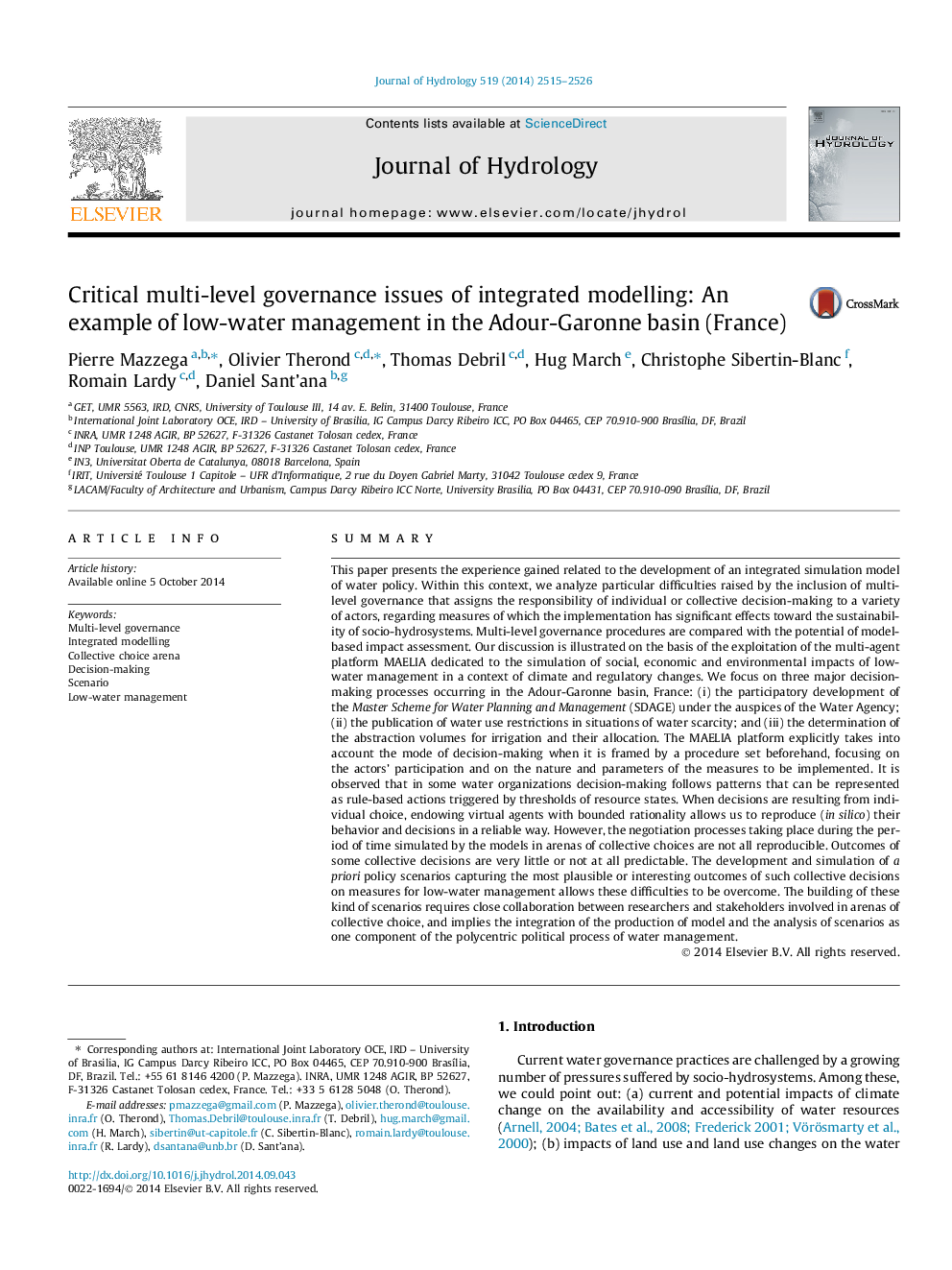| کد مقاله | کد نشریه | سال انتشار | مقاله انگلیسی | نسخه تمام متن |
|---|---|---|---|---|
| 6412625 | 1332901 | 2014 | 12 صفحه PDF | دانلود رایگان |
- Description of the governance of low-water management in France.
- Integrated models accounts for some agents' rationality and norms for actions.
- Decision-making processes in collective choice arenas limit the use of models.
- Policy scenarios account for likely outcomes of negotiations in simulations.
SummaryThis paper presents the experience gained related to the development of an integrated simulation model of water policy. Within this context, we analyze particular difficulties raised by the inclusion of multi-level governance that assigns the responsibility of individual or collective decision-making to a variety of actors, regarding measures of which the implementation has significant effects toward the sustainability of socio-hydrosystems. Multi-level governance procedures are compared with the potential of model-based impact assessment. Our discussion is illustrated on the basis of the exploitation of the multi-agent platform MAELIA dedicated to the simulation of social, economic and environmental impacts of low-water management in a context of climate and regulatory changes. We focus on three major decision-making processes occurring in the Adour-Garonne basin, France: (i) the participatory development of the Master Scheme for Water Planning and Management (SDAGE) under the auspices of the Water Agency; (ii) the publication of water use restrictions in situations of water scarcity; and (iii) the determination of the abstraction volumes for irrigation and their allocation. The MAELIA platform explicitly takes into account the mode of decision-making when it is framed by a procedure set beforehand, focusing on the actors' participation and on the nature and parameters of the measures to be implemented. It is observed that in some water organizations decision-making follows patterns that can be represented as rule-based actions triggered by thresholds of resource states. When decisions are resulting from individual choice, endowing virtual agents with bounded rationality allows us to reproduce (in silico) their behavior and decisions in a reliable way. However, the negotiation processes taking place during the period of time simulated by the models in arenas of collective choices are not all reproducible. Outcomes of some collective decisions are very little or not at all predictable. The development and simulation of a priori policy scenarios capturing the most plausible or interesting outcomes of such collective decisions on measures for low-water management allows these difficulties to be overcome. The building of these kind of scenarios requires close collaboration between researchers and stakeholders involved in arenas of collective choice, and implies the integration of the production of model and the analysis of scenarios as one component of the polycentric political process of water management.
Journal: Journal of Hydrology - Volume 519, Part C, 27 November 2014, Pages 2515-2526
